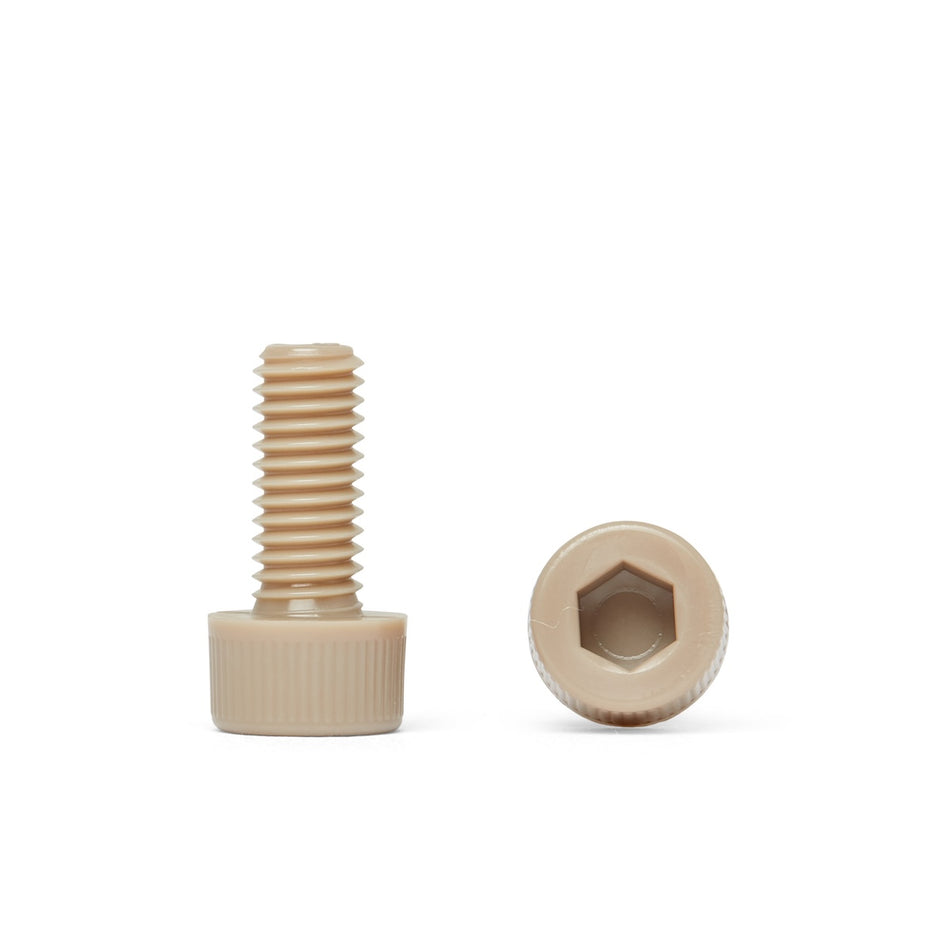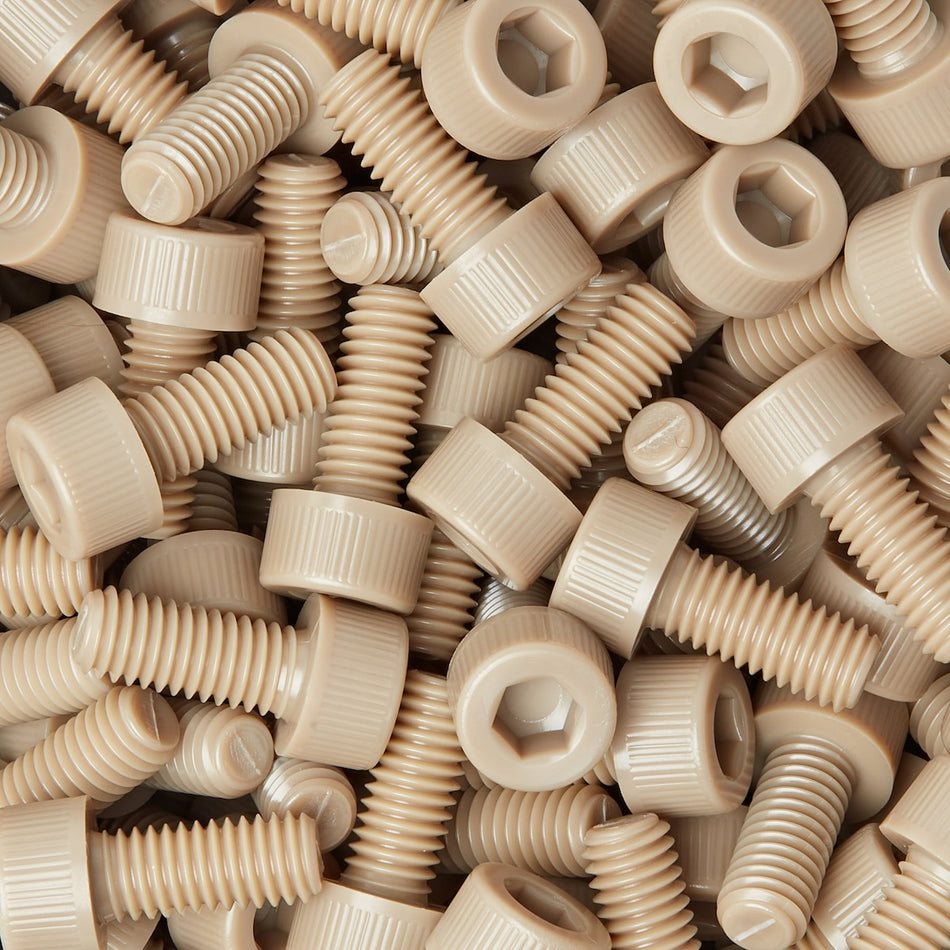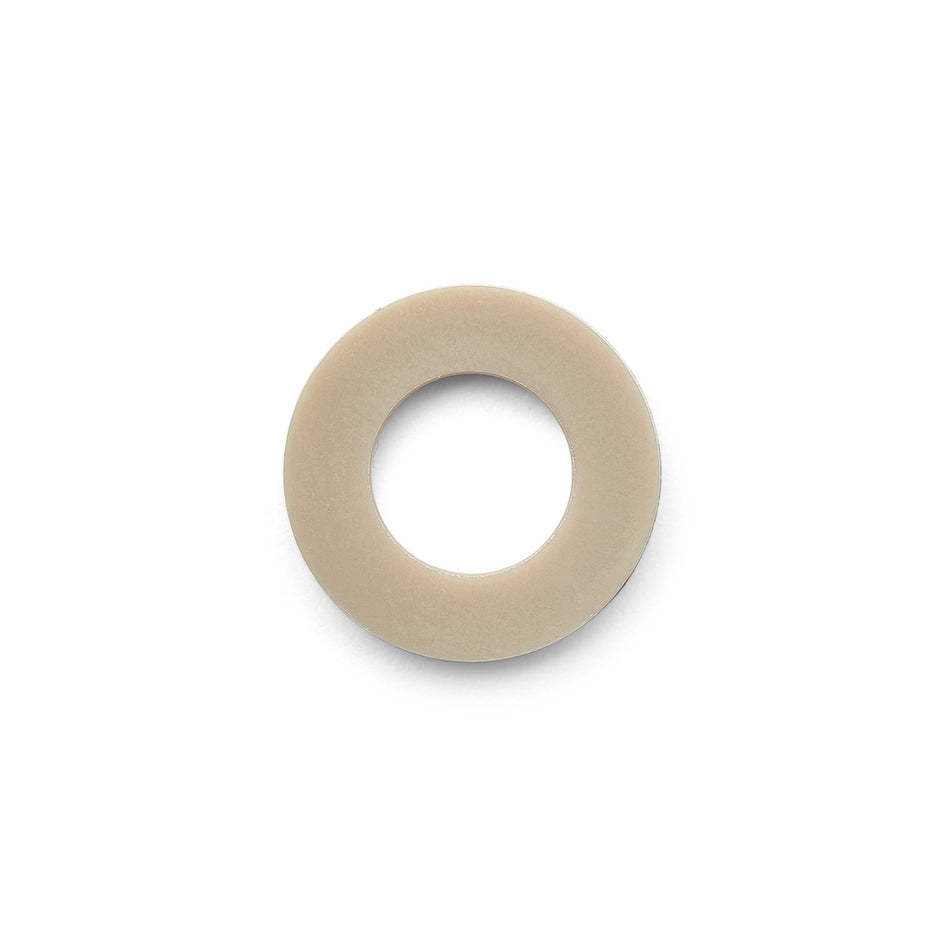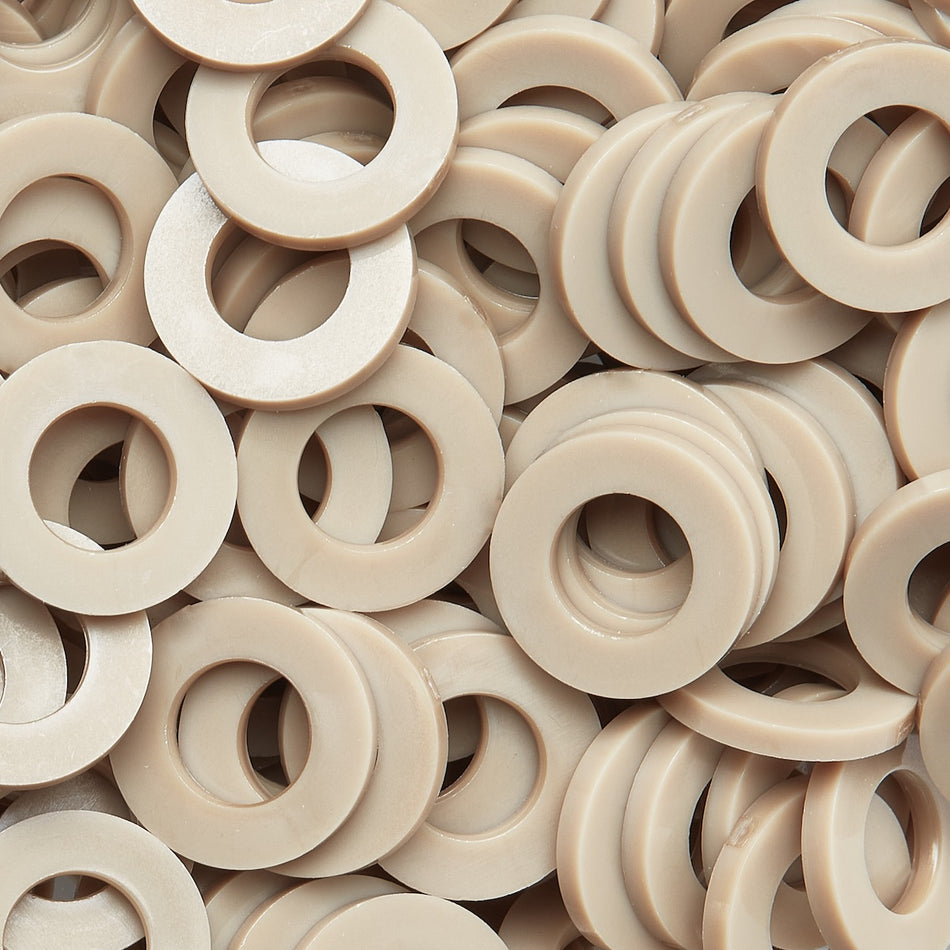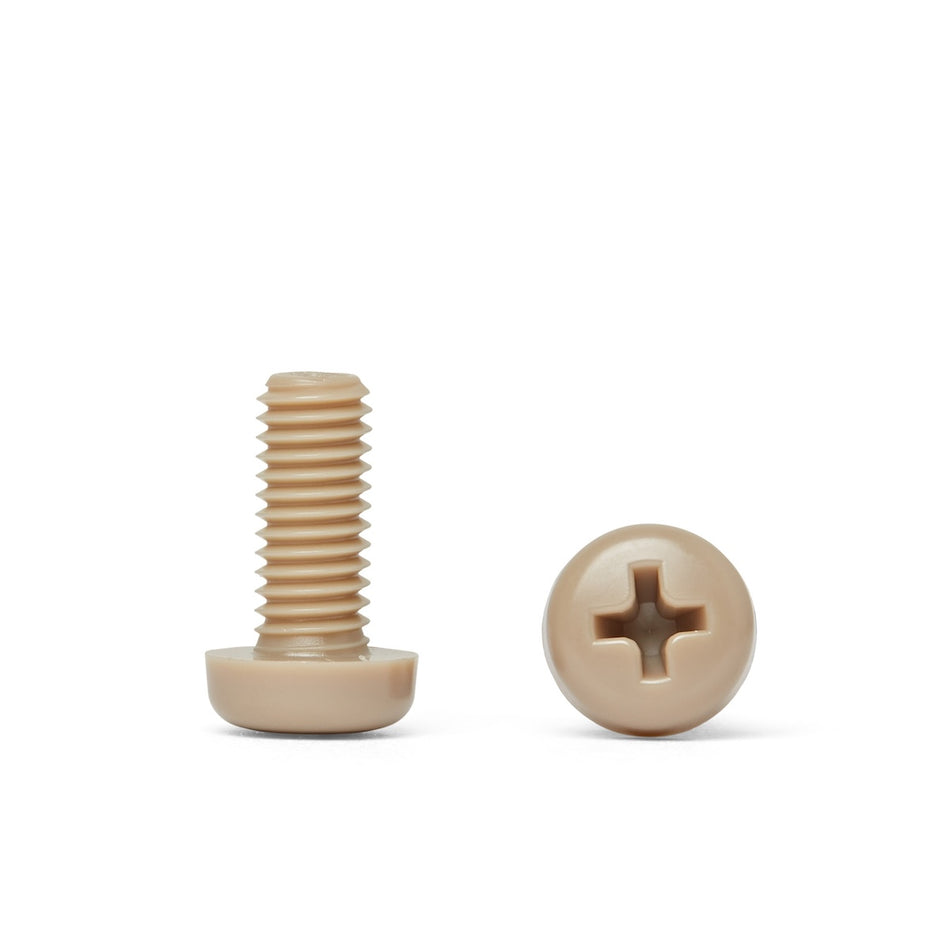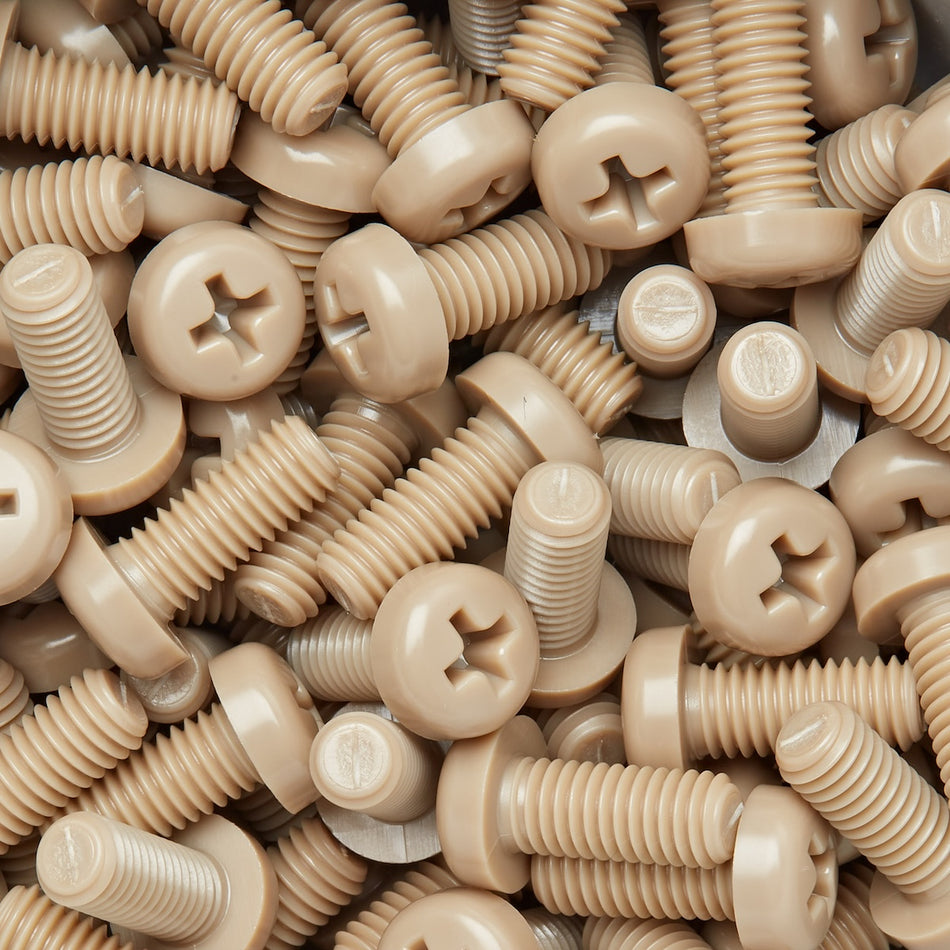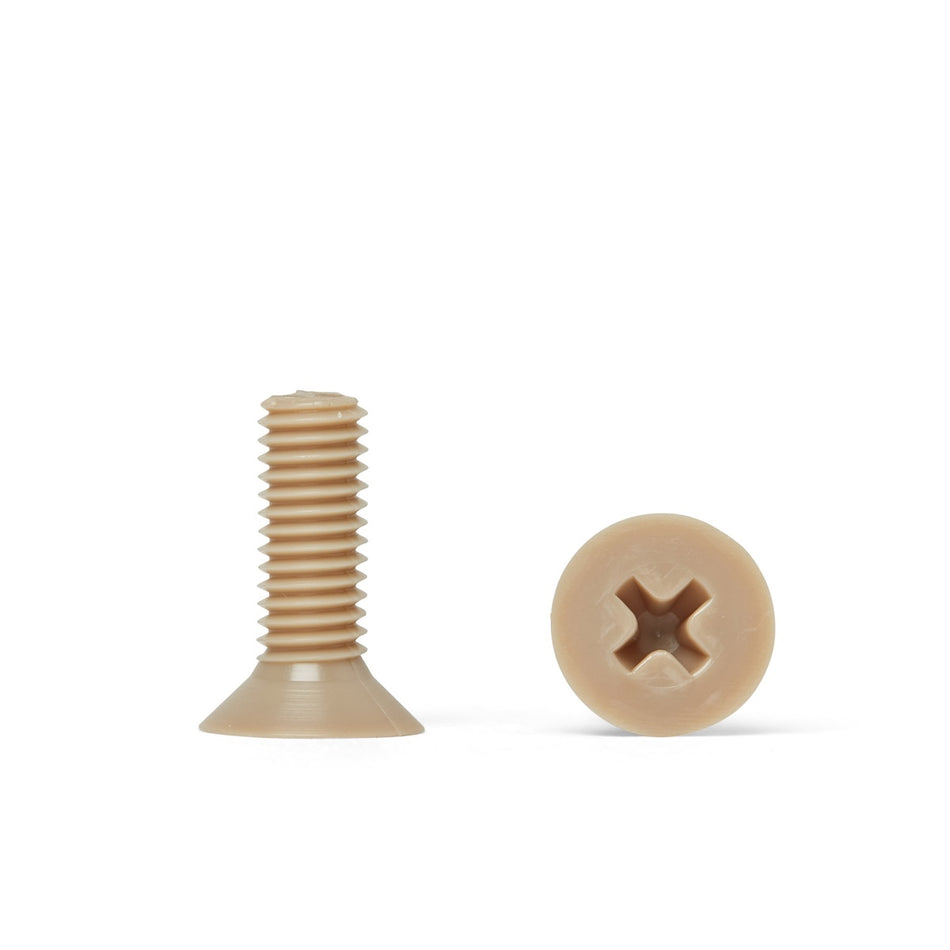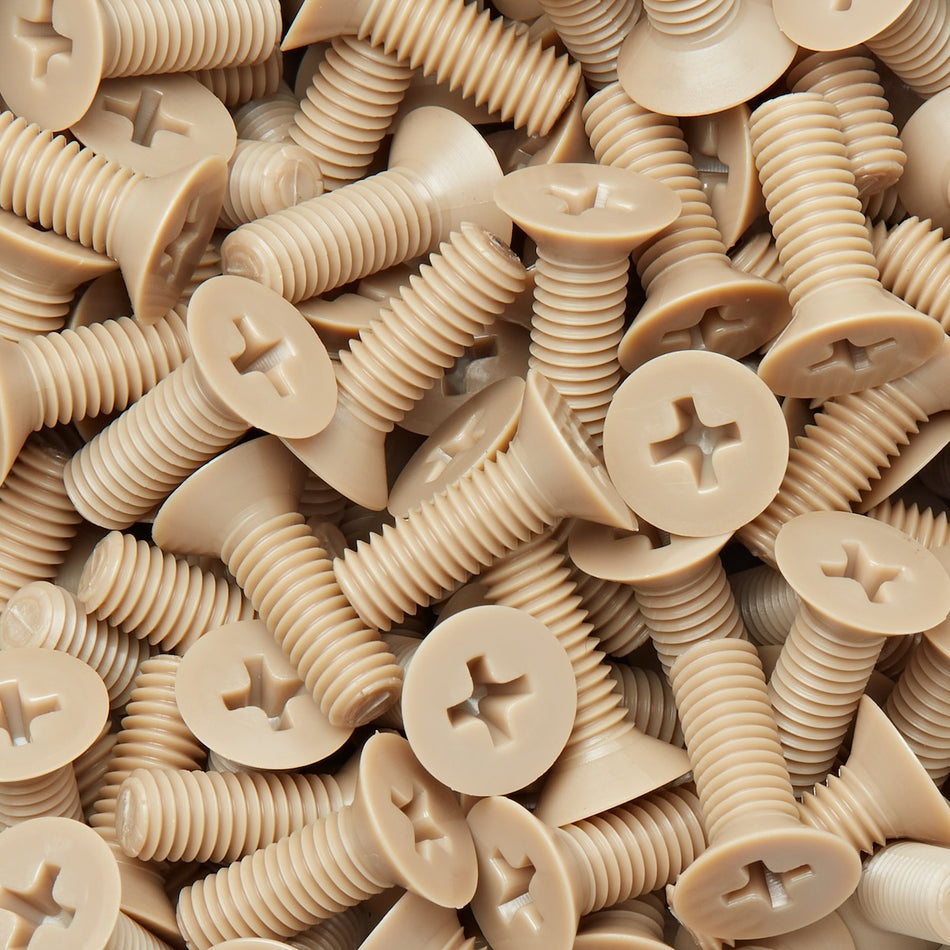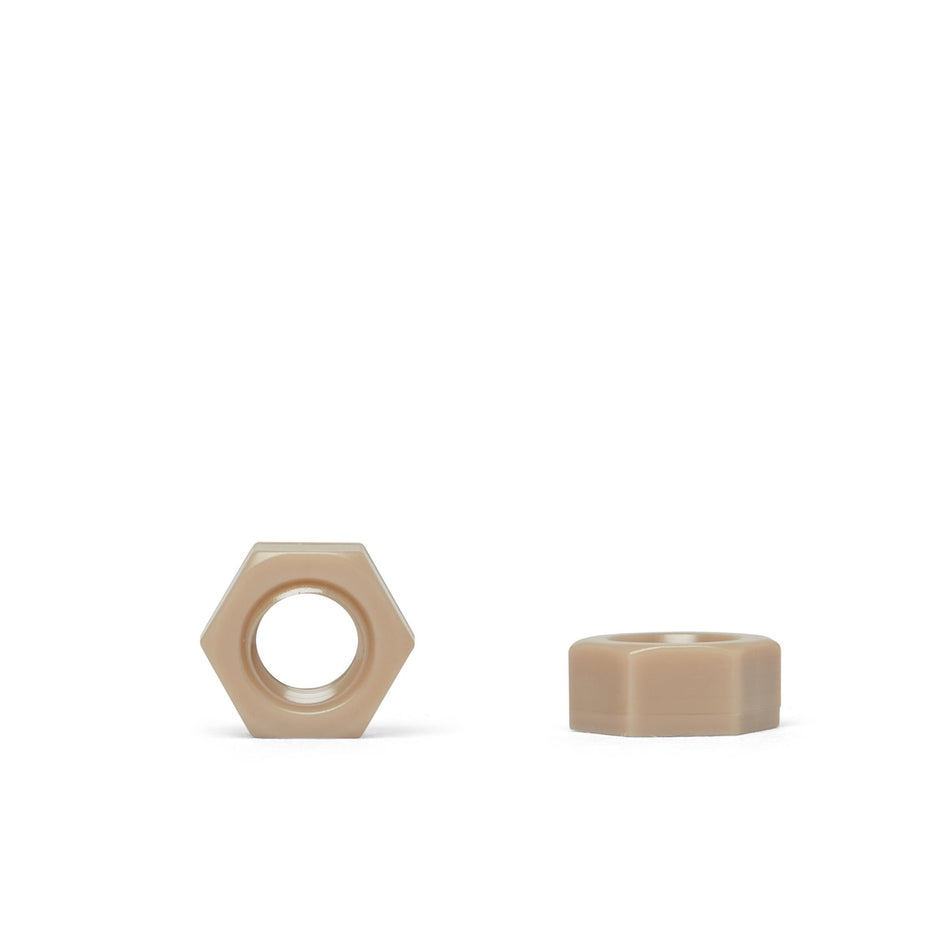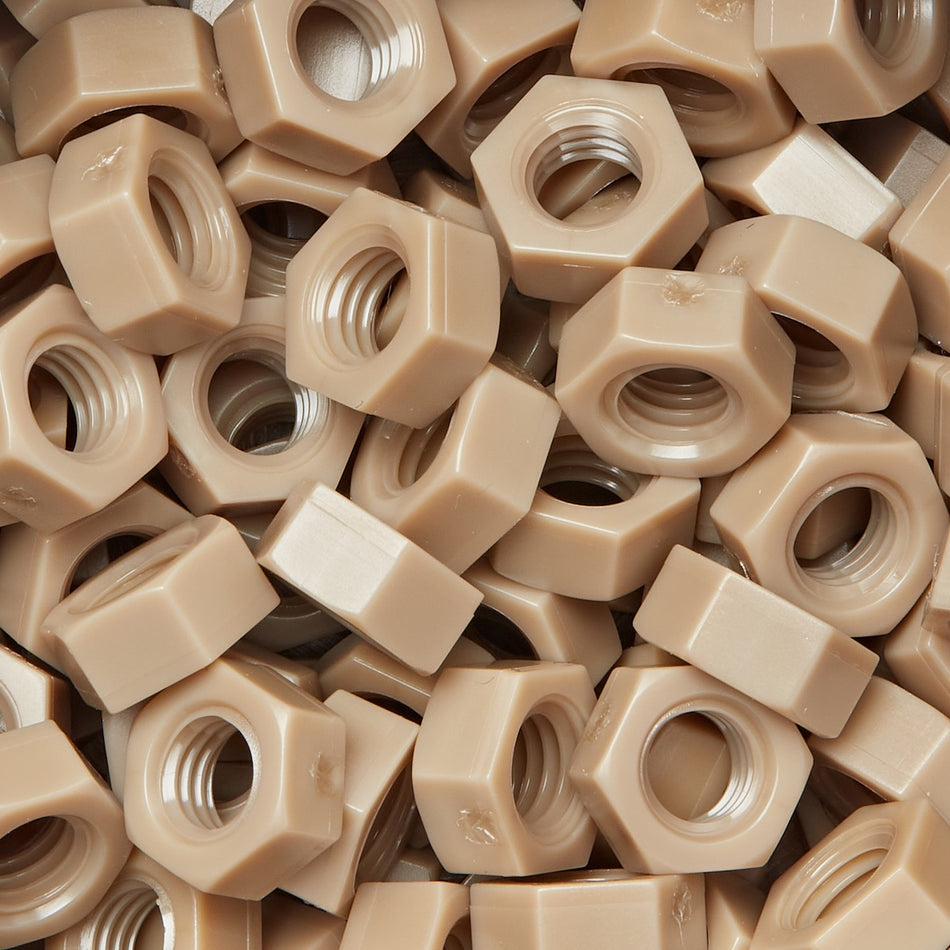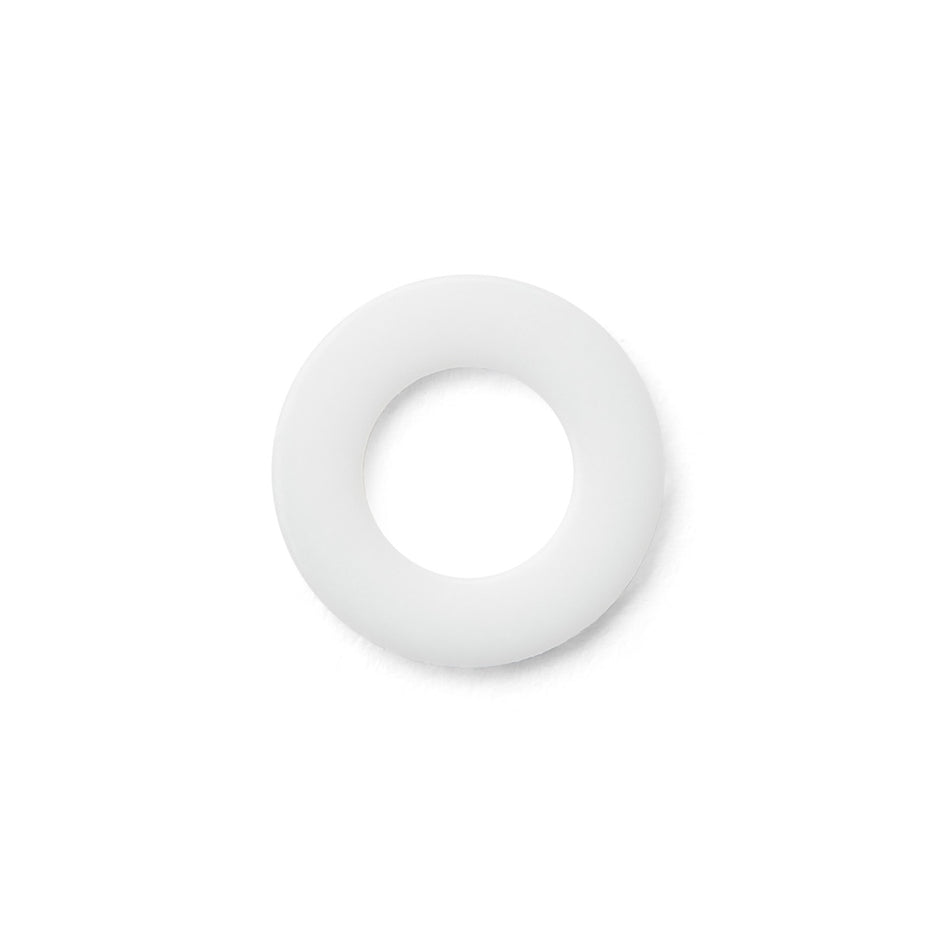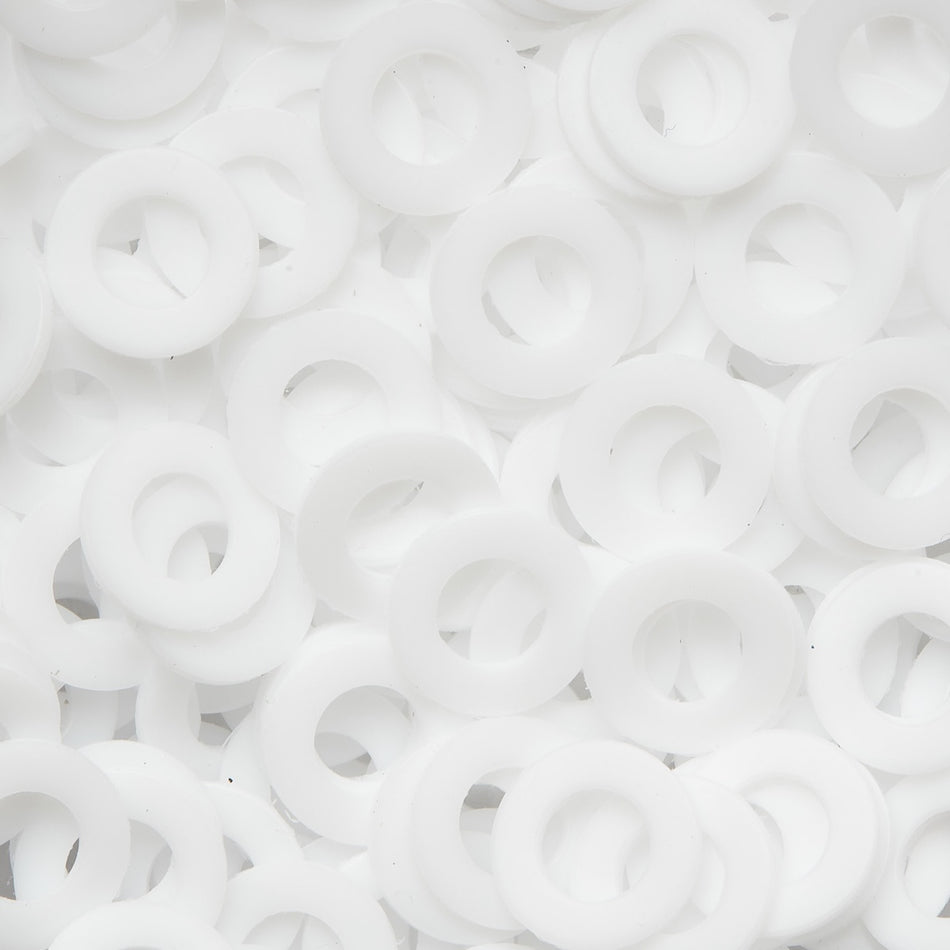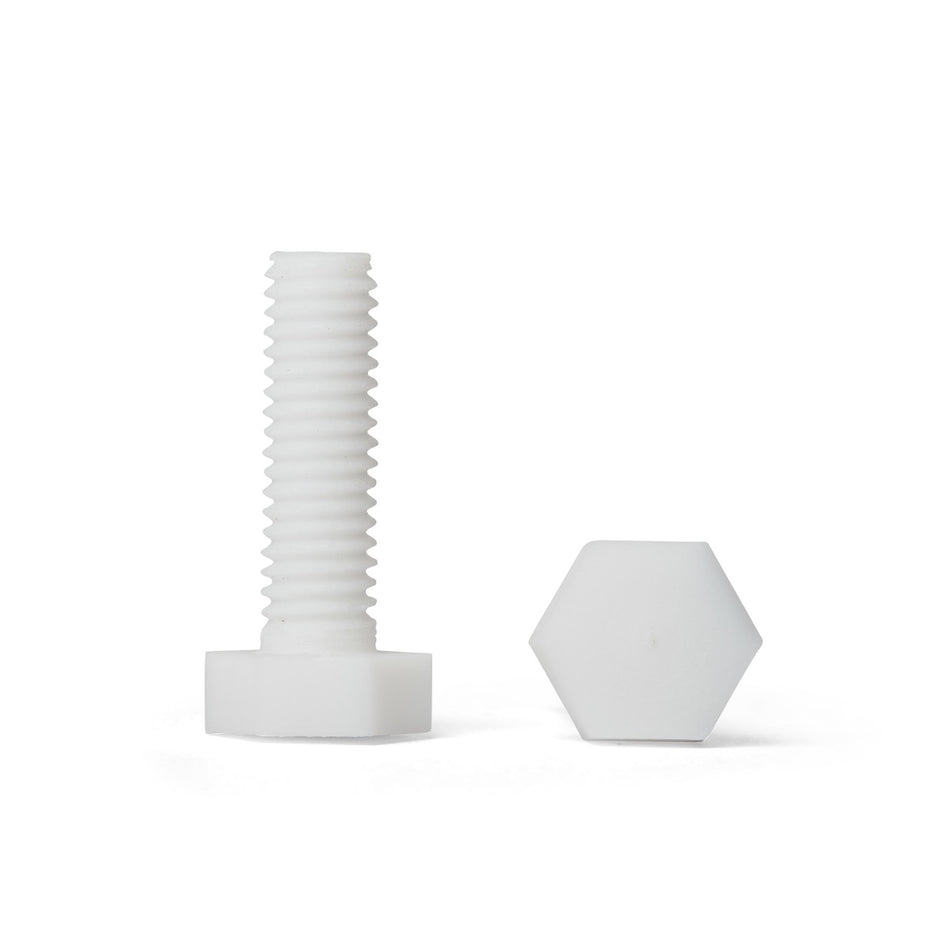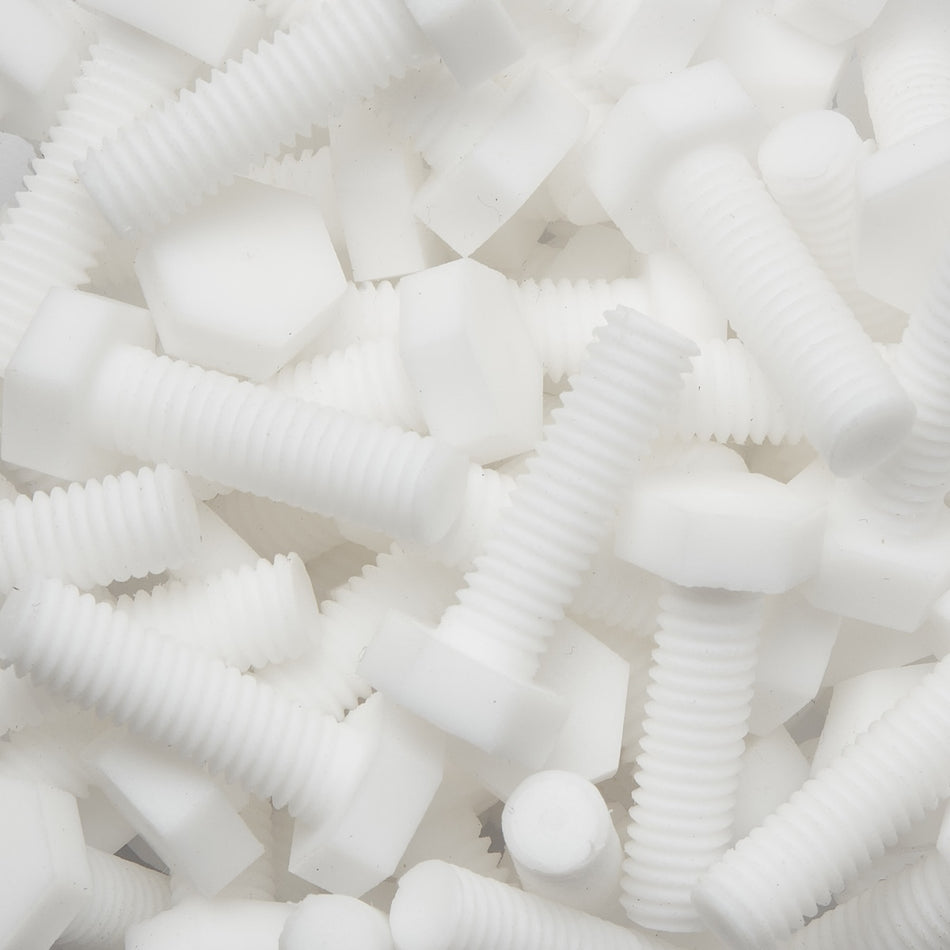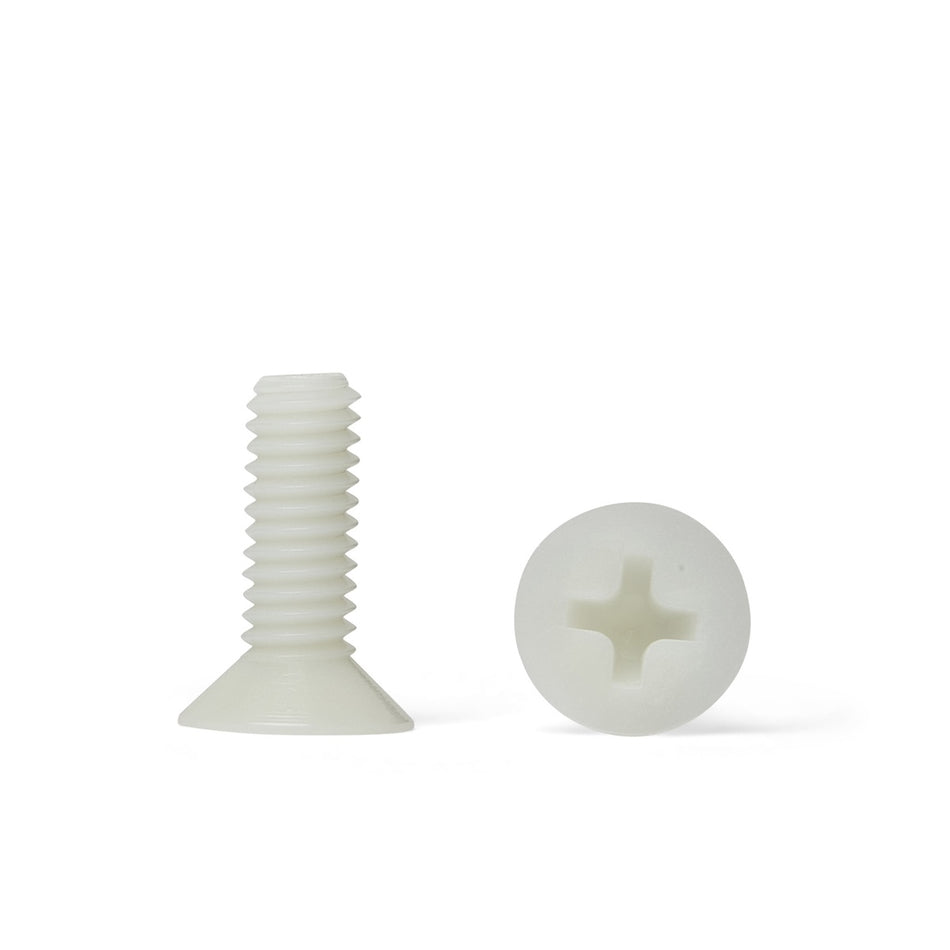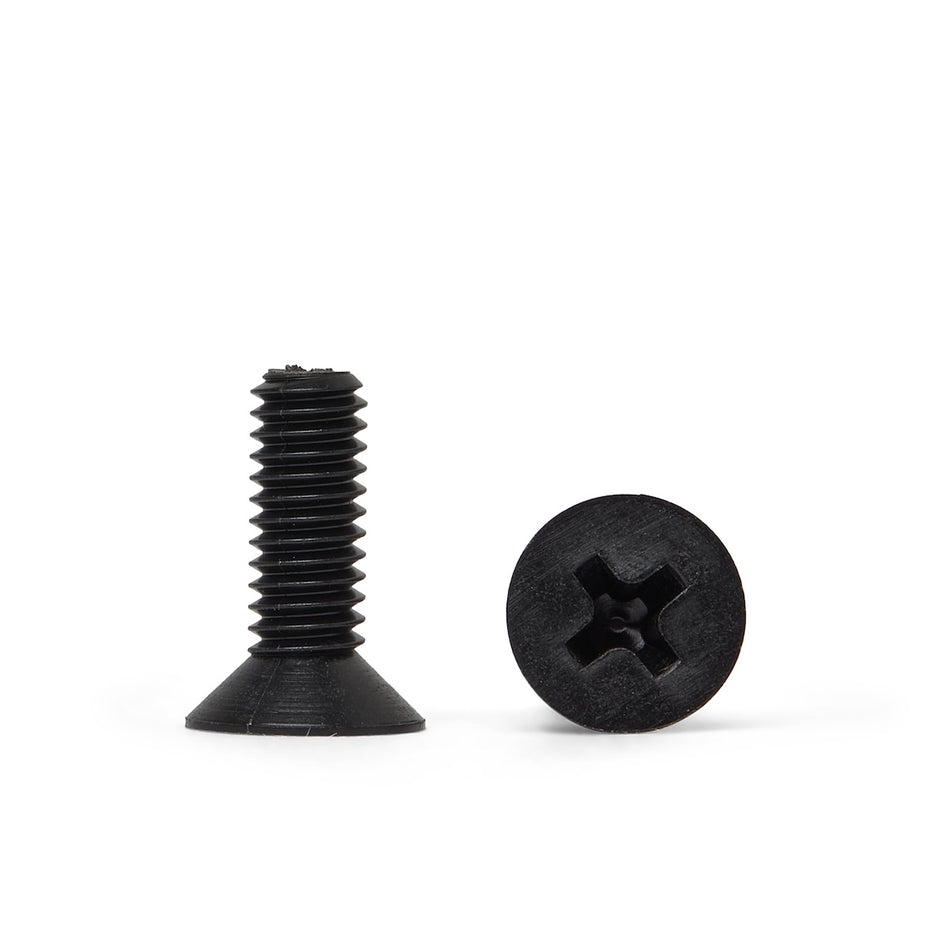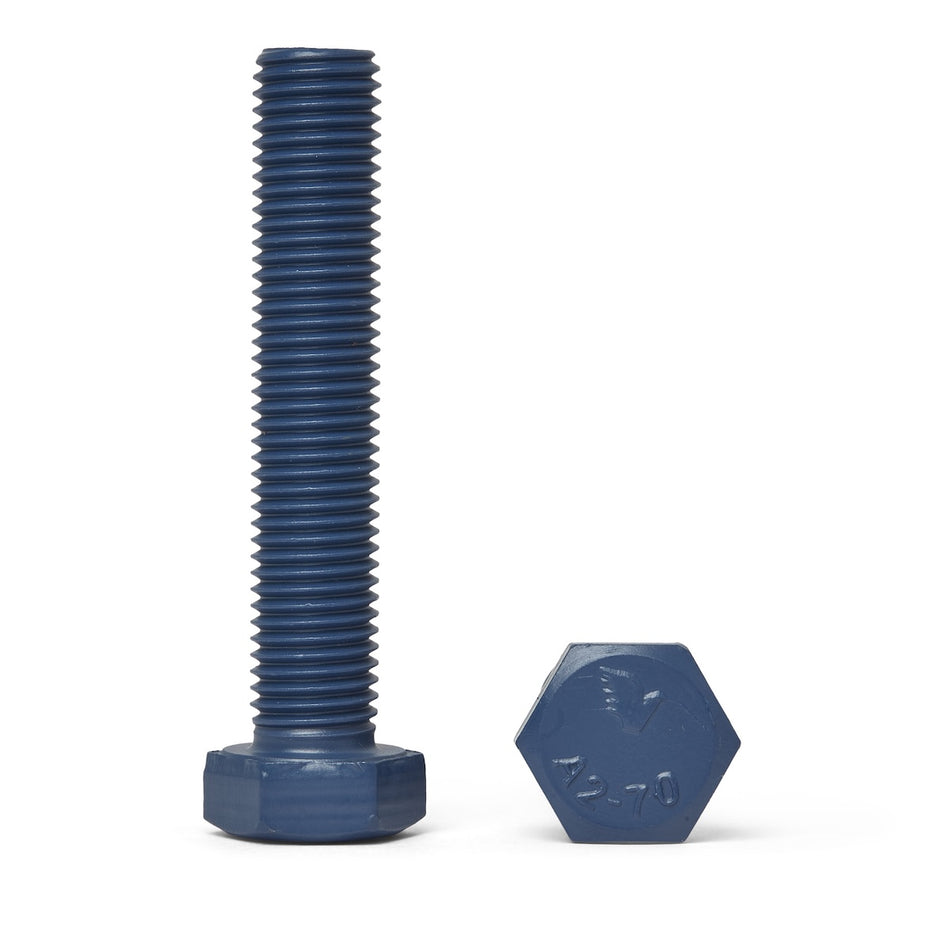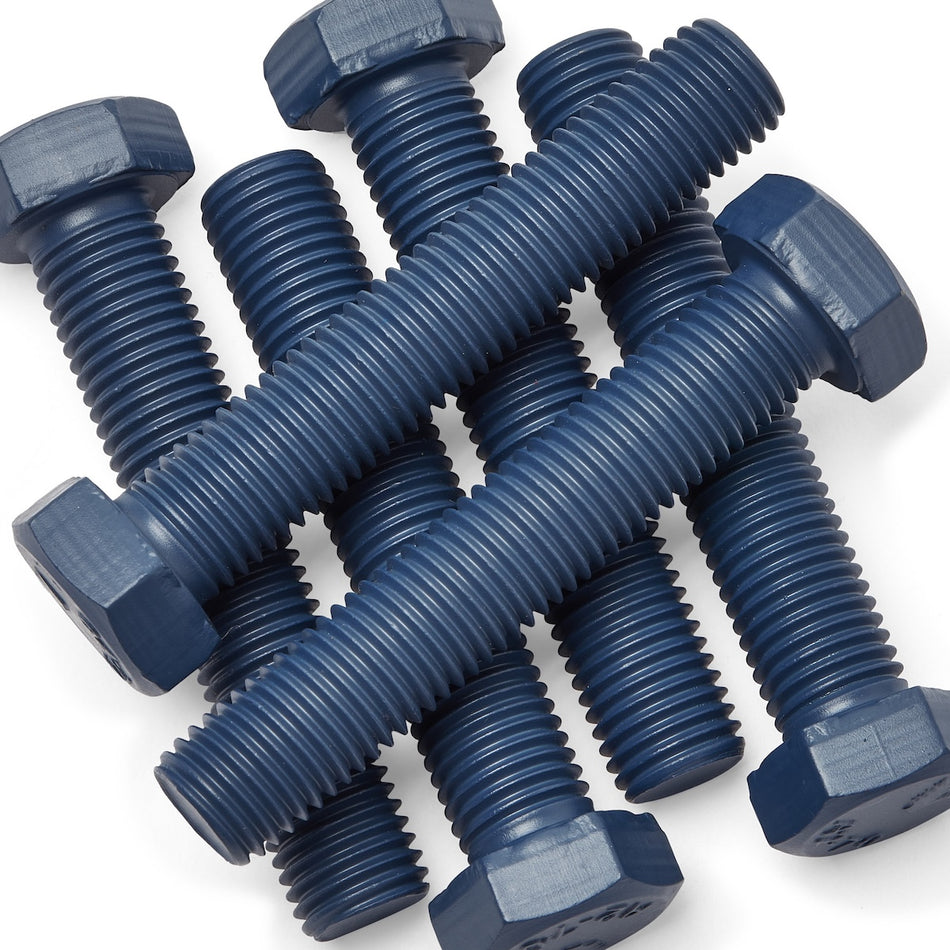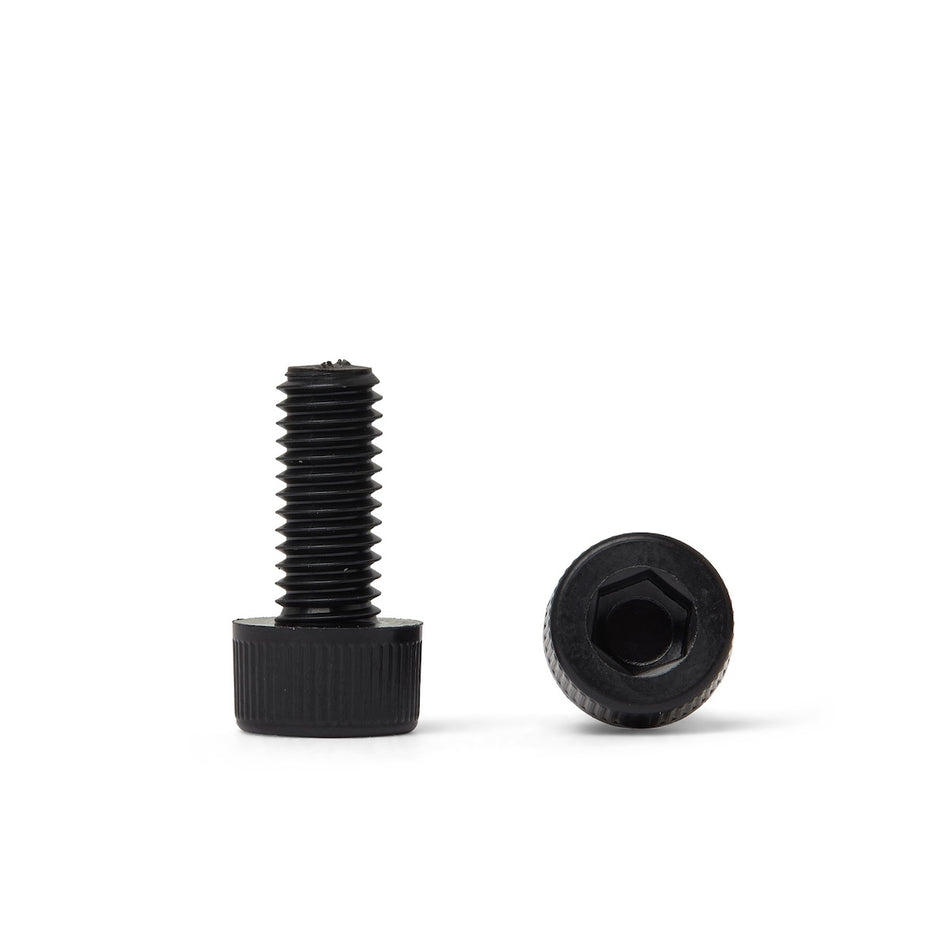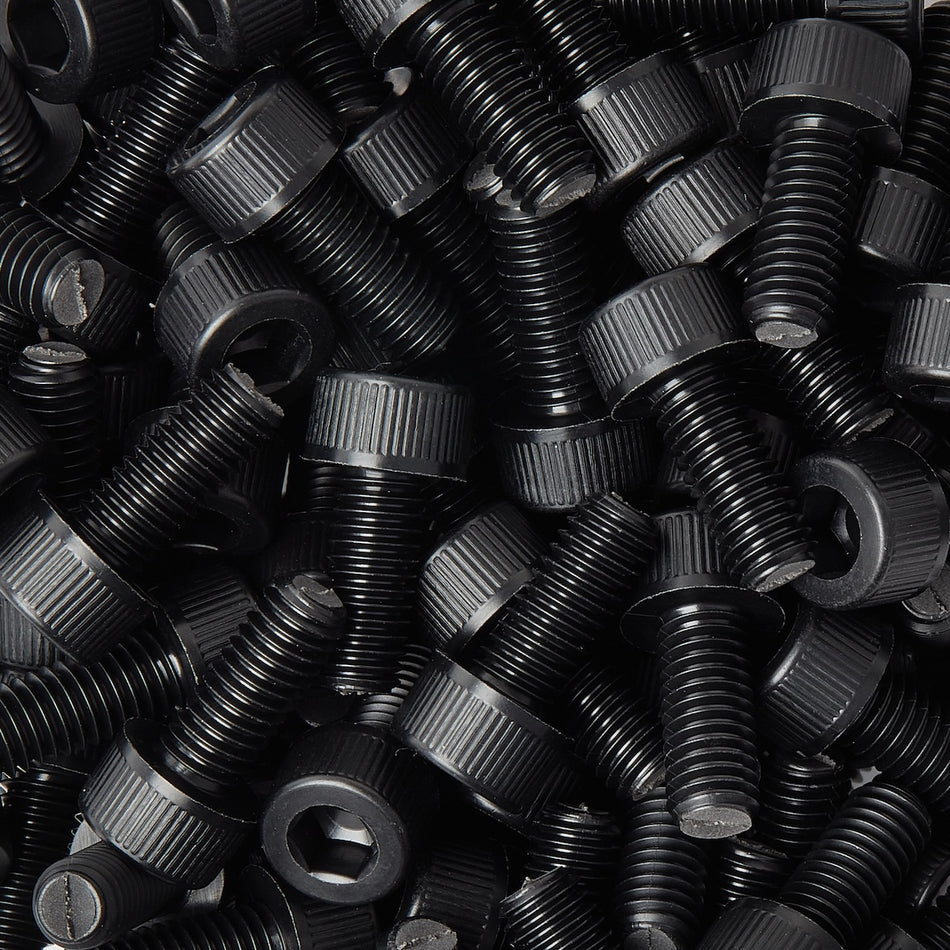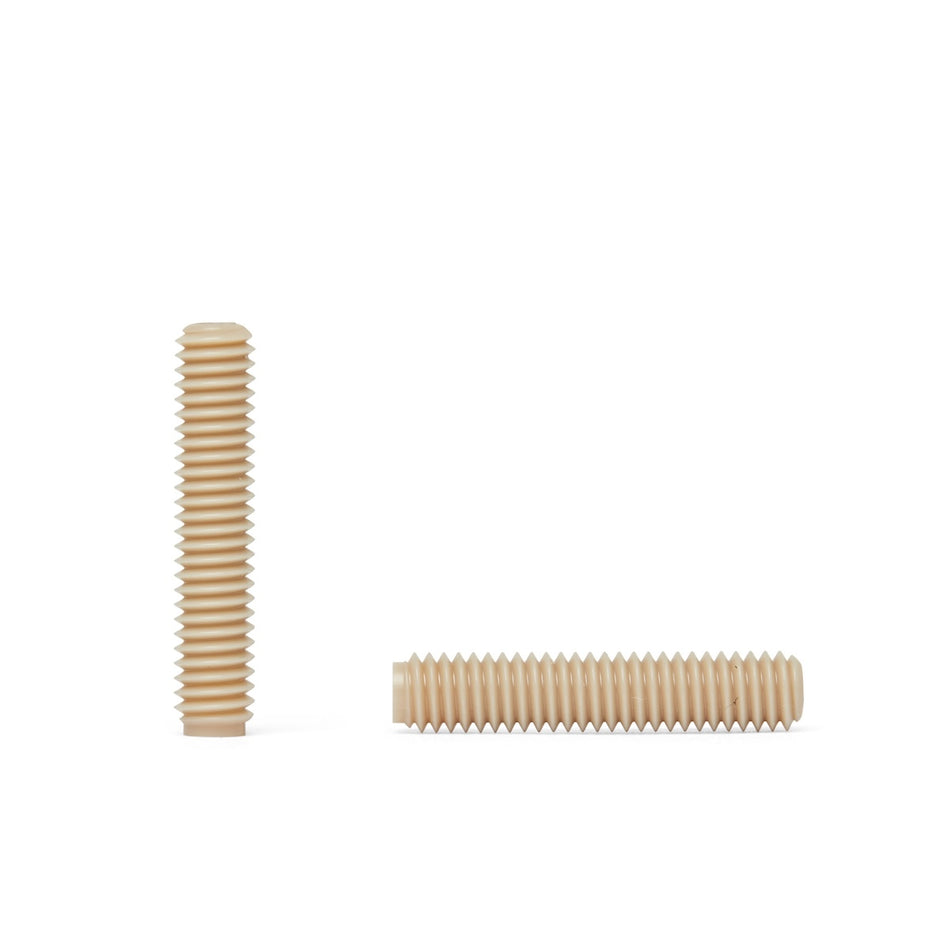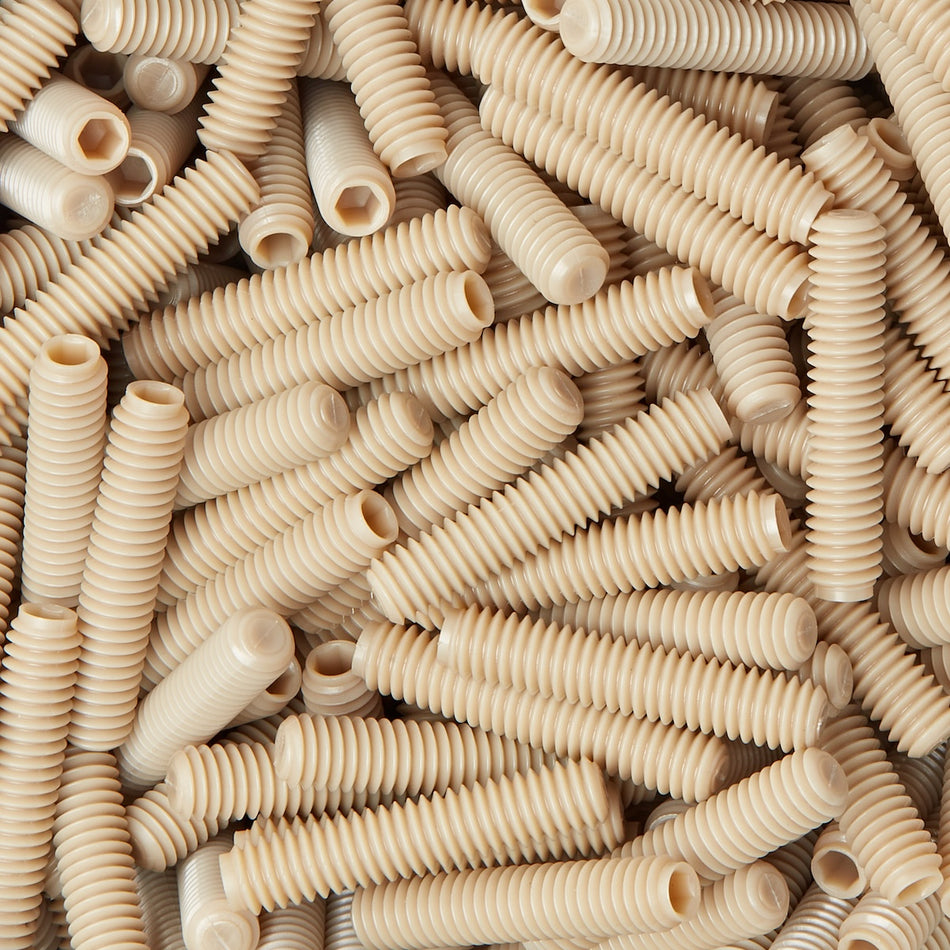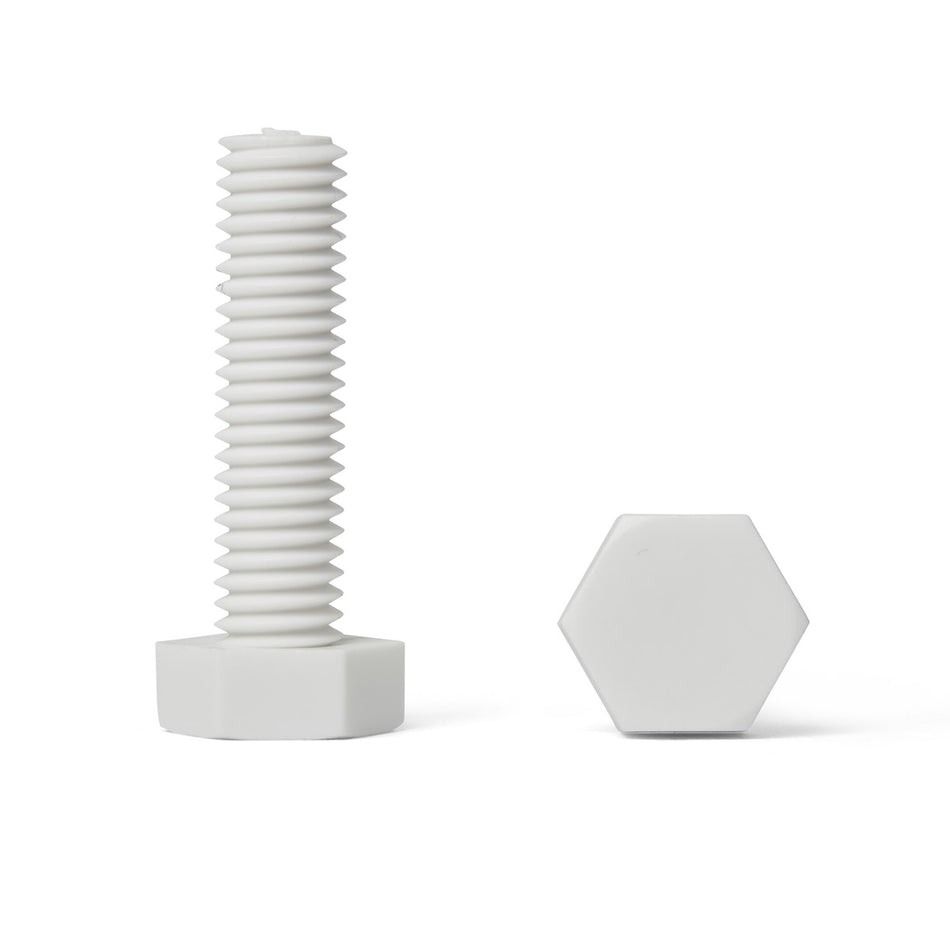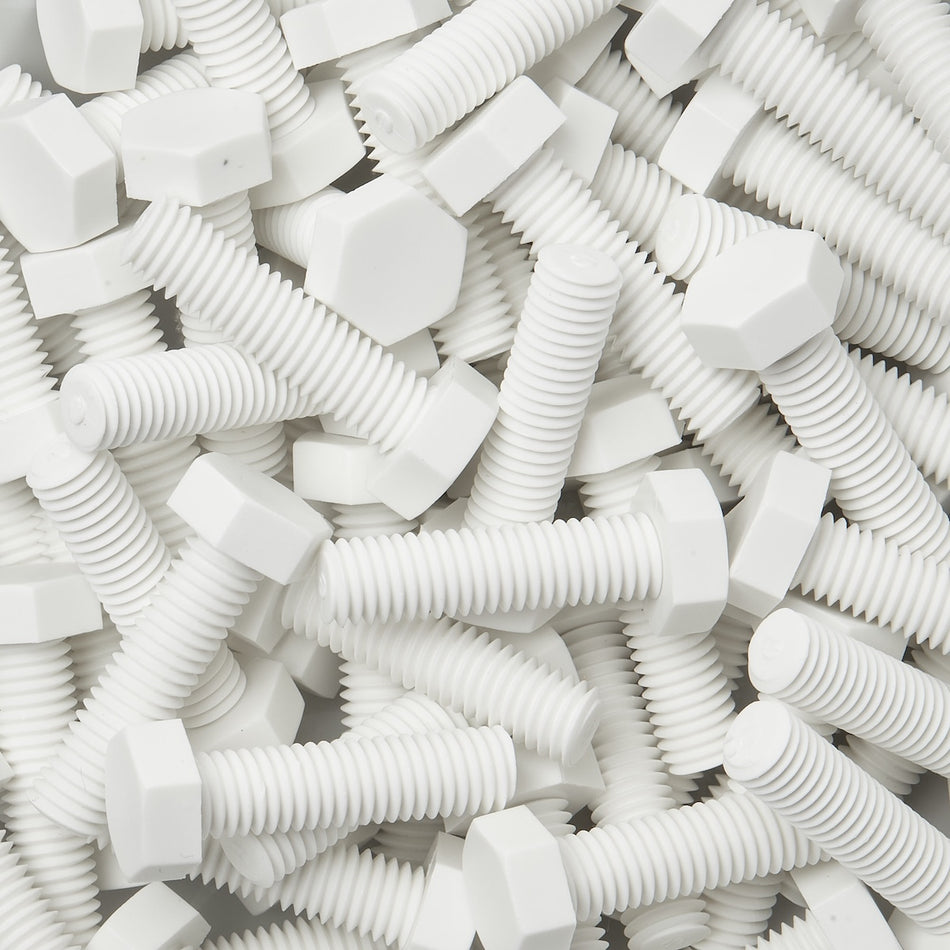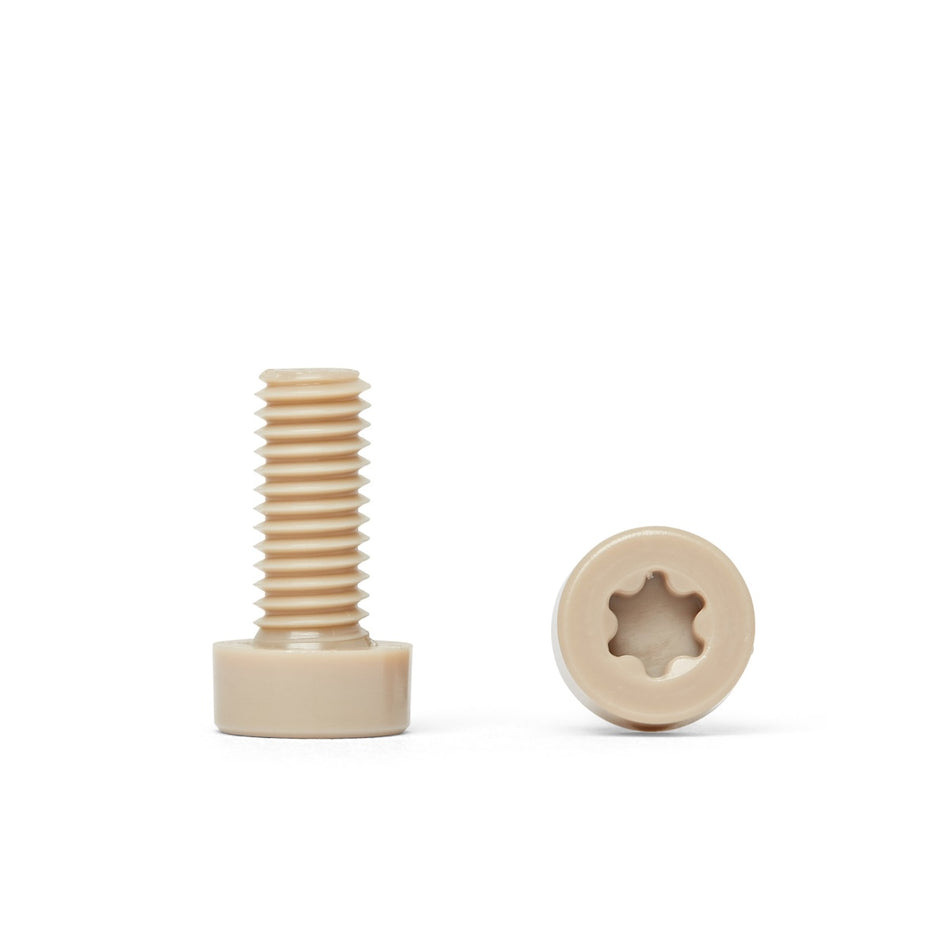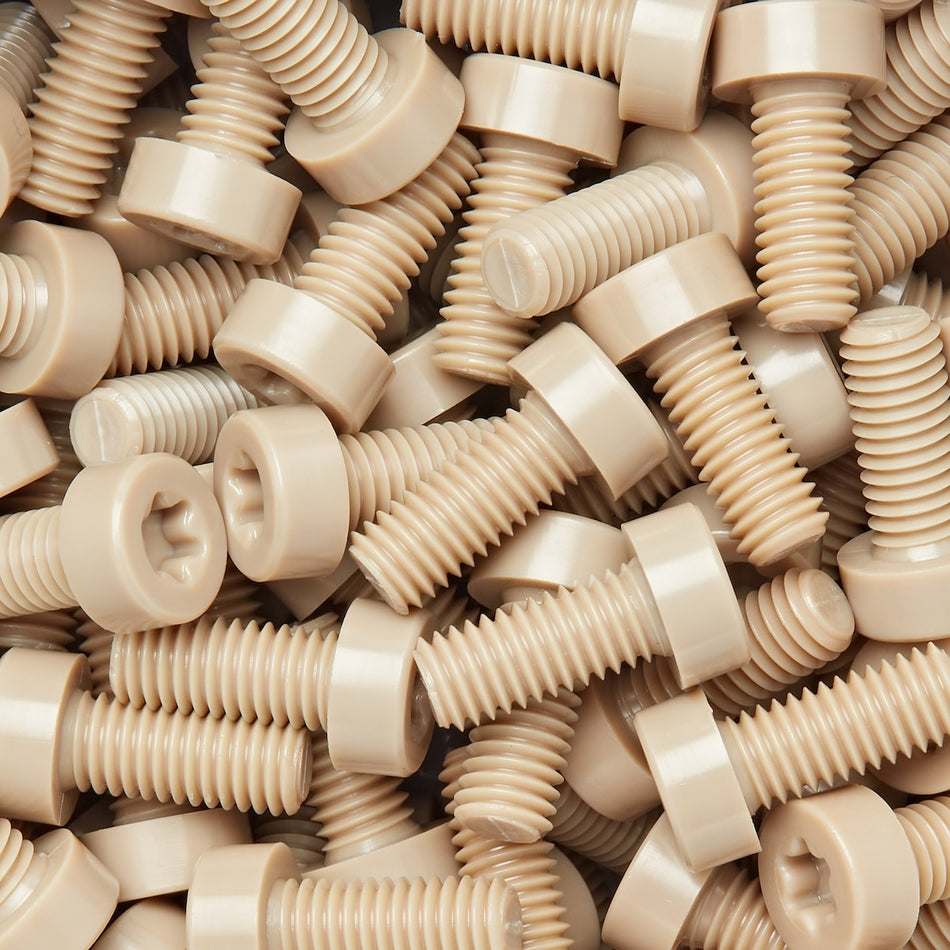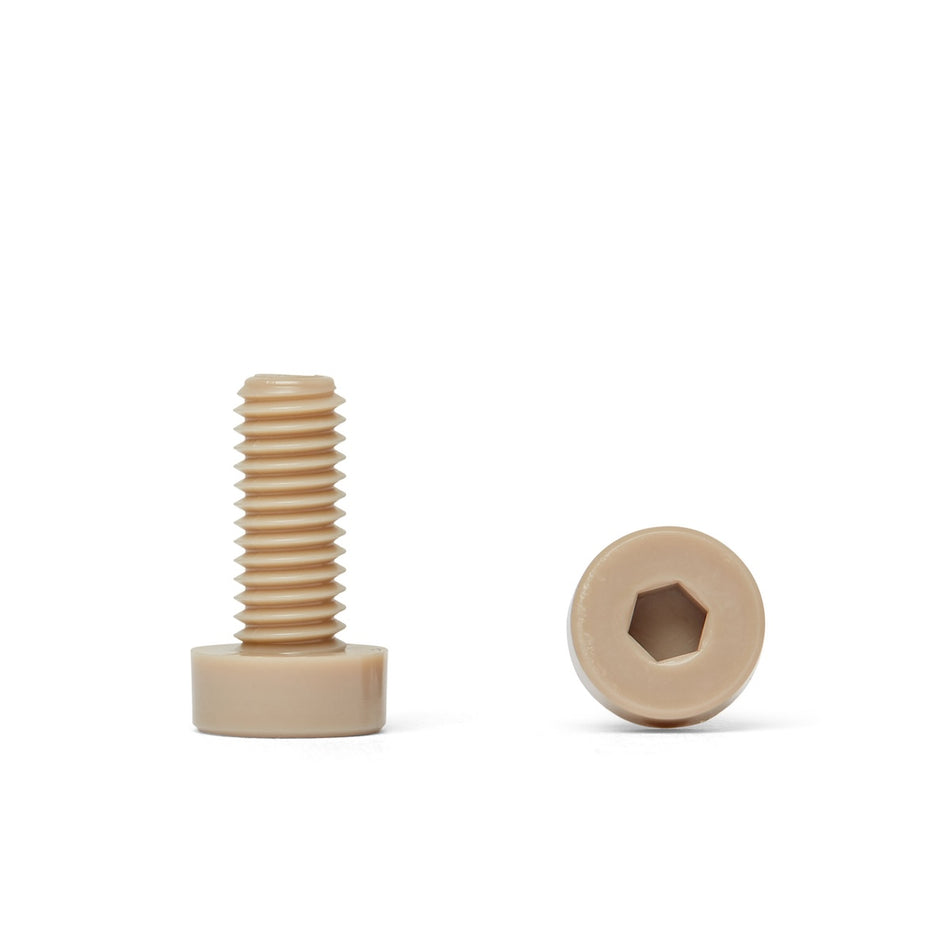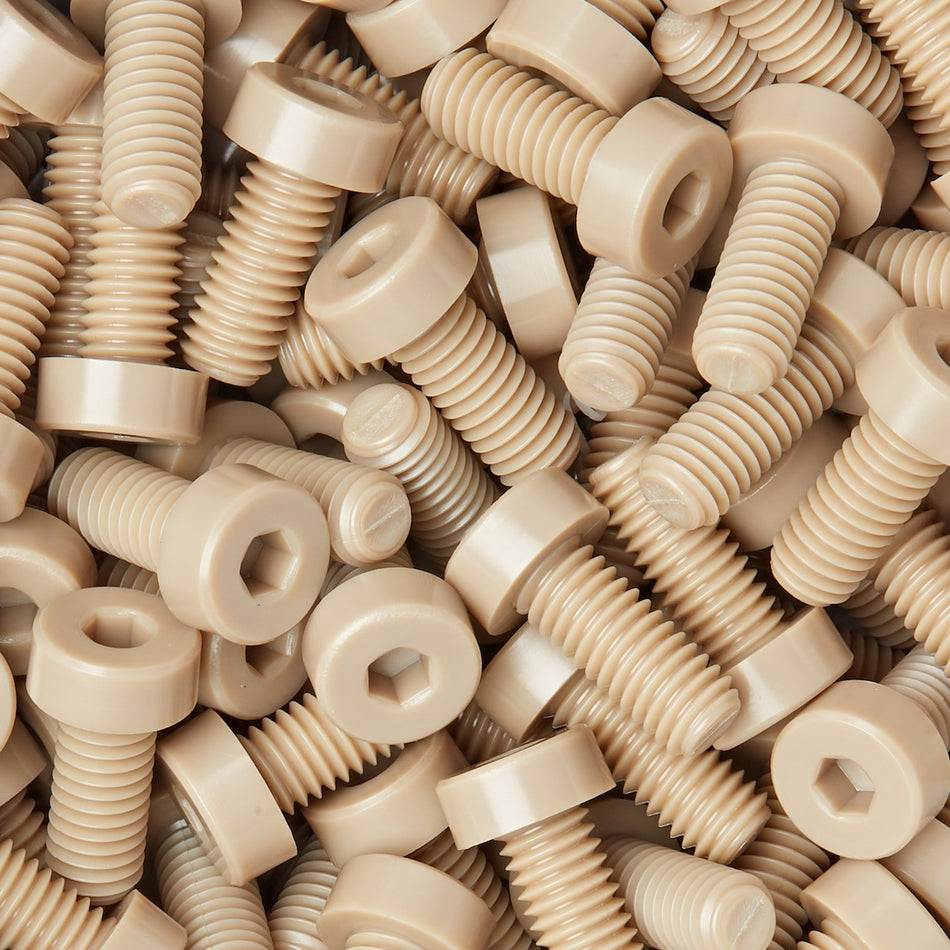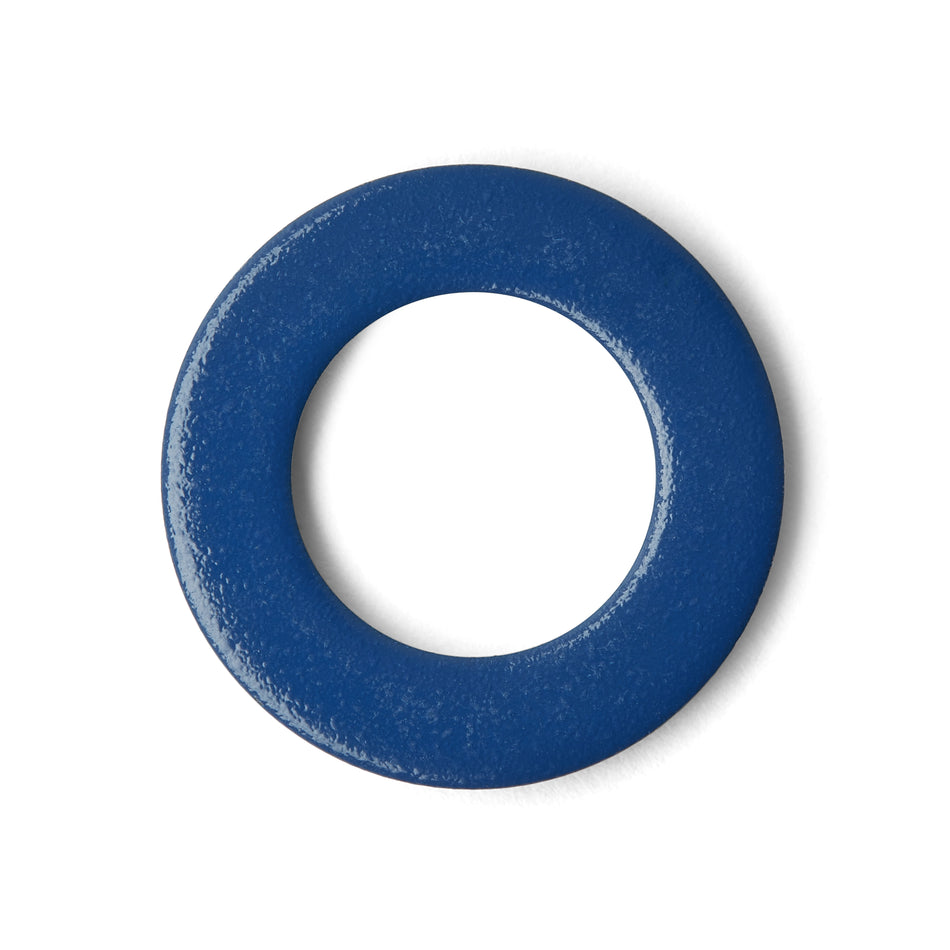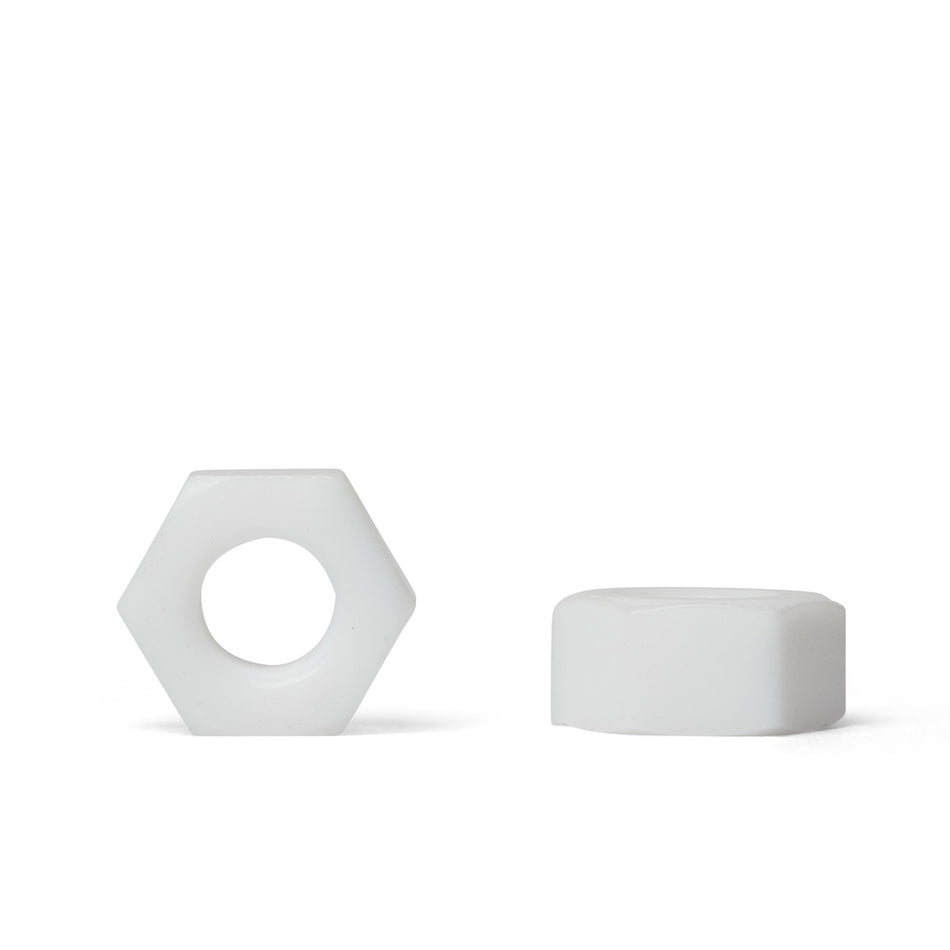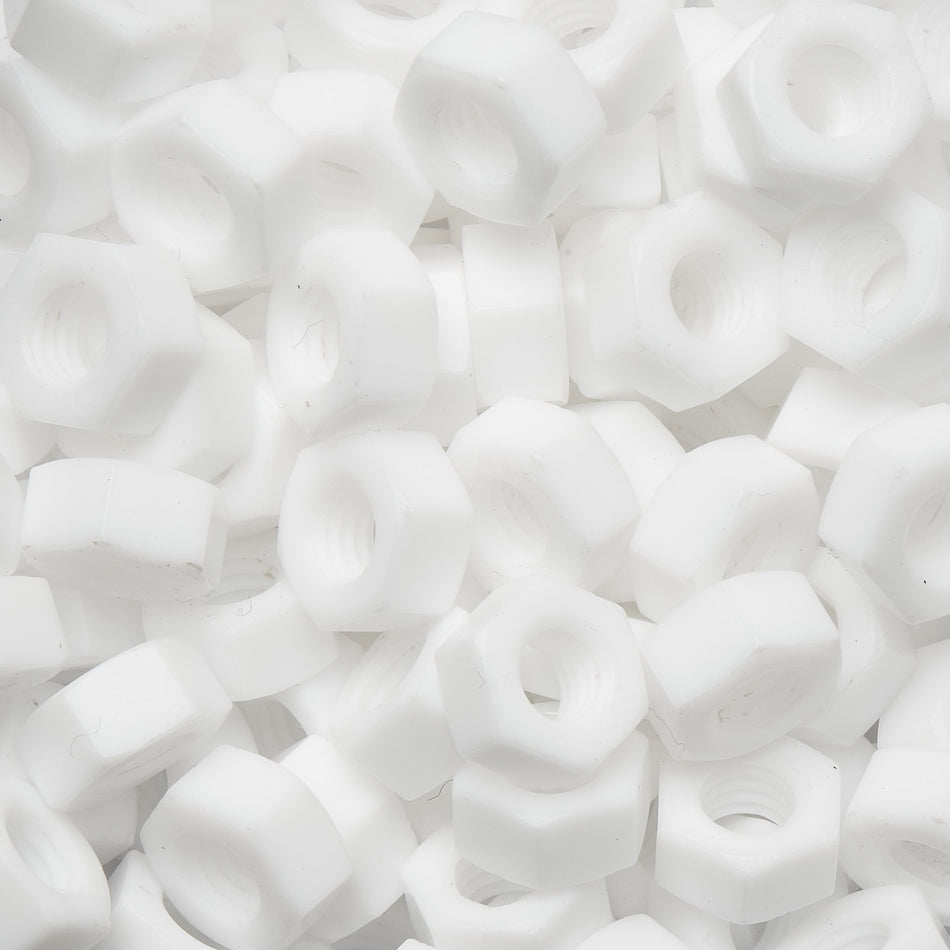234 Producten
Niet-magnetische schroeven, moeren, bouten, sluitringen en bevestigingsmiddelen

Why are non-magnetic fasteners needed?
Non-magnetic polymer fasteners are needed in applications where the presence of magnetic materials could interfere with sensitive equipment or processes. In industries like medical imaging (such as MRI machines), aerospace, and electronics, non-magnetic fasteners prevent magnetic fields from disrupting the operation of critical devices. They are also essential in military and defense applications, where magnetic signatures must be minimized for stealth purposes. Additionally, non-magnetic fasteners are used in scientific instruments, data storage, and telecommunications equipment to ensure accurate measurements and reliable performance, as magnetic interference can cause data corruption or operational failures.
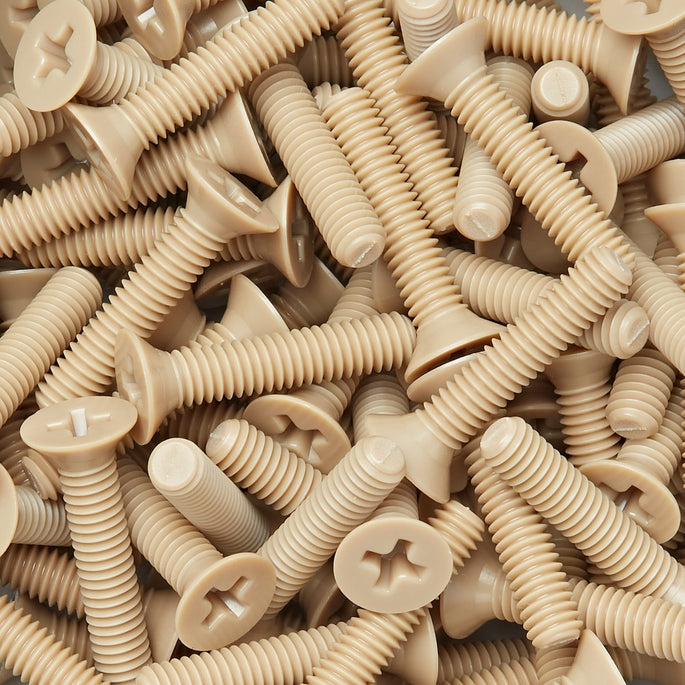
Non-Magnetic Fastener Materials
There are a variety of non-magnetic polymers that can be used to make screws, nuts, bolts, washers, and fasteners due to their low magnetic susceptibility, which makes them suitable for use in applications where magnetic fields are a concern.
All fasteners provided by HPP are non-magnetic complaint, however, below outlines our key non-magnetic polymer fastener materials:
Polyetheretherketone (PEEK): PEEK is a type of polymer that is made from monomers called ketones. It is a non-magnetic material that is known for its excellent mechanical and thermal properties, as well as its chemical resistance and good electrical insulation properties.
Polyphenylene sulfide (PPS): PPS is a type of polymer that is made from monomers called phenylenes and sulfides. It is a non-magnetic material that is known for its excellent thermal stability and high temperature resistance, as well as its good chemical resistance and electrical insulation properties.
Polytetrafluoroethylene (PTFE): PTFE is a type of polymer that is made from monomers called tetrafluoroethylenes. It is a non-magnetic material that is known for its excellent chemical resistance, low coefficient of friction, and high temperature resistance.
Polyvinyl chloride (PVC): PVC is a type of polymer that is made from monomers called vinyl chlorides. It is a non-magnetic material that is known for its good chemical resistance, low cost, and versatility.
Polycarbonate: Polycarbonate is a type of polymer that is made from monomers called carbonates. It is a non-magnetic material that is known for its excellent mechanical properties, high temperature resistance, and good electrical insulation properties.

Non-Magnetic Fastener Applications
Non-magnetic polymer screws, nuts, bolts, washers, and fasteners may be used in a variety of applications where magnetic fields are a concern, such as in the construction of medical equipment or in the assembly of electronic components. They may also be used in the manufacture of non-magnetic materials or in the installation of electrical systems.
In addition to their use in the medical, military, and aerospace industries, non-magnetic polymer fasteners may also be used in other applications where magnetic fields are a concern, such as in the construction of magnetic resonance imaging (MRI) machines or in the operation of military equipment. They may also be used in environments where magnetic materials are not desired, such as in the assembly of scientific instruments or in the transportation of sensitive materials.

What makes these polymers non-magnetic?
Polymer fasteners are non-magnetic because they are made from organic compounds that lack the free electrons and metallic elements required to generate a magnetic field. Unlike metals, which contain atoms with unpaired electrons that can align and create magnetism, polymers are composed of long chains of non-metallic elements such as carbon, hydrogen, oxygen, and nitrogen. These elements do not interact with magnetic fields, making the material inherently non-magnetic. Additionally, the manufacturing process avoids the use of metallic additives or fillers that could introduce magnetic properties, ensuring that the fasteners remain non-magnetic. This makes polymer fasteners ideal for applications where magnetic interference must be avoided.

What are the benefits of non-magnetic fasteners?
Non-magnetic polymer fasteners offer several benefits, including the elimination of magnetic interference, making them ideal for sensitive equipment like MRI machines, aerospace systems, and scientific instruments. They are corrosion-resistant, durable in harsh environments, and lightweight, which is beneficial for reducing system weight in industries like aerospace and automotive. Additionally, these fasteners provide electrical insulation and resist chemicals, ensuring long-term performance in industrial, chemical, and outdoor applications. Their combination of non-magnetic properties, durability, and versatility makes them valuable in environments requiring both reliability and magnetic neutrality.
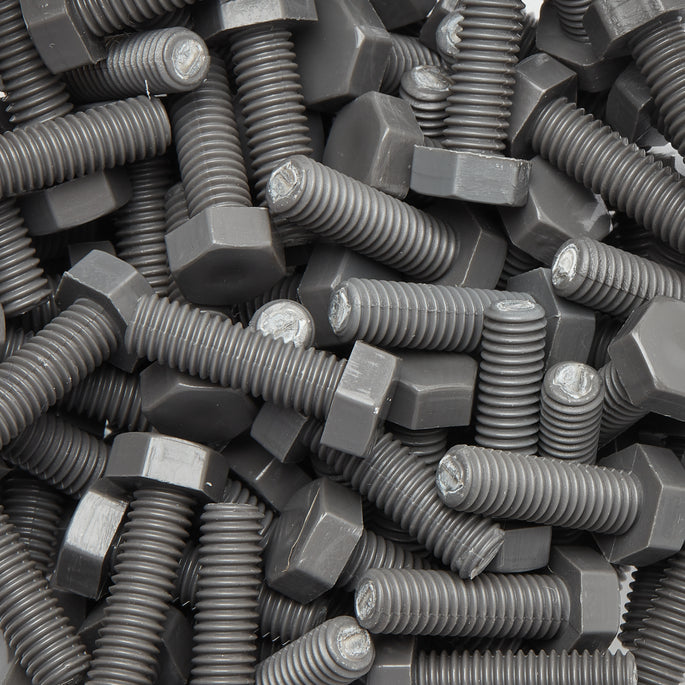
Other Benefits Of Non-Magnetic Fasteners
Other beneficial properties of non-magnetic fasteners include; corrosion resistance and good mechanical properties. They can help to improve the safety and reliability of medical and electronic systems, and they can help to prevent interference from magnetic fields.
Niet-magnetische polymeer schroeven, moeren, bouten, ringen en bevestigingsmiddelen zijn bevestigingsmiddelen die gemaakt zijn van polymeren met een lage magnetische gevoeligheid. Ze worden gebruikt in verschillende toepassingen waar magnetische velden een probleem zijn, zoals in de medische, militaire en ruimtevaartindustrie of in omgevingen waar magnetische materialen niet gewenst zijn.
Er zijn verschillende niet-magnetische polymeren die kunnen worden gebruikt om schroeven, moeren, bouten, sluitringen en bevestigingsmiddelen te maken, waaronder polyethyleen, polypropyleen en polytetrafluorethyleen (PTFE). Deze polymeren staan bekend om hun lage magnetische gevoeligheid, waardoor ze geschikt zijn voor gebruik in toepassingen waar magnetische velden een probleem vormen.
Niet-magnetische schroeven, moeren, bouten, sluitringen en bevestigingsmiddelen van polymeren kunnen worden gebruikt in verschillende toepassingen waar magnetische velden een probleem vormen, zoals bij de constructie van medische apparatuur of bij de assemblage van elektronische componenten. Ze kunnen ook worden gebruikt bij de productie van niet-magnetische materialen of bij de installatie van elektrische systemen.
Niet-magnetische bevestigingsmiddelen van polymeer worden vaak gekozen vanwege hun lage magnetische gevoeligheid en andere gunstige eigenschappen, zoals corrosiebestendigheid en goede mechanische eigenschappen. Ze kunnen helpen om de veiligheid en betrouwbaarheid van medische en elektronische systemen te verbeteren en ze kunnen storingen door magnetische velden helpen voorkomen.
Naast hun gebruik in de medische, militaire en luchtvaartindustrie kunnen niet-magnetische bevestigingsmiddelen van polymeer ook worden gebruikt in andere toepassingen waar magnetische velden een probleem vormen, zoals bij de constructie van MRI-machines (Magnetic Resonance Imaging) of bij de werking van militaire apparatuur. Ze kunnen ook worden gebruikt in omgevingen waar magnetische materialen niet gewenst zijn, zoals bij de assemblage van wetenschappelijke instrumenten of bij het transport van gevoelige materialen.

